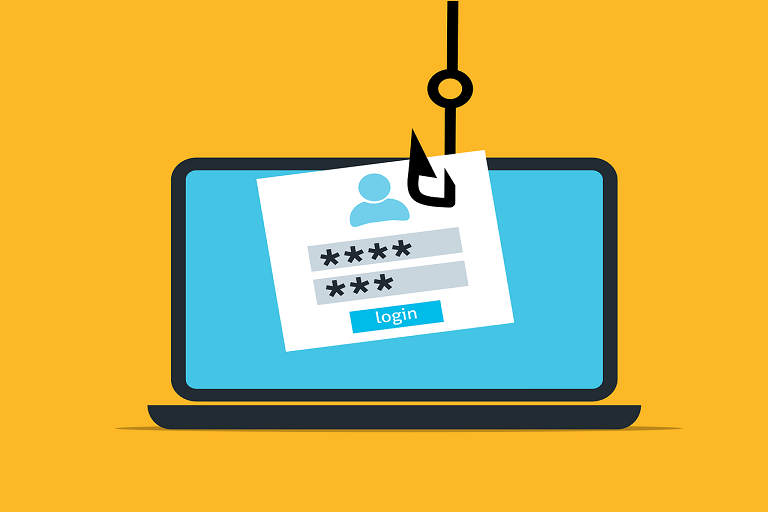Freelance Scams: What are They and How to Avoid Them

Learn how to spot and avoid freelance scams to protect your career and business. Stay safe in the freelancing world.
Freelancers enjoy the freedom to set their own schedules, allowing for a better work-life balance. It can give you an opportunity to work on diverse projects, and most of all, to be your own boss. But like most things, freelancing has its downsides, and one of the most significant is the growing presence of freelance scams. These scams can lead to lost time, unpaid work, and even damage to your reputation. Here, you’ll get a clear understanding about freelance scams, what they are, common types, and most importantly, how to avoid them.
What Are Freelance Scams and How Do They Work?
A freelance scam occurs when a client or company attempts to deceive a freelancer. In such scams, the client may try to avoid paying the freelancer or exploit them for other benefits. These scams can range from simple schemes to more carefully planned operations that may cause long-term harm to a freelancer’s career.
Scammers typically prey on freelancers by exploiting the trust and eagerness to secure work. Unfortunately, many newcomers to freelancing are the most vulnerable since they may not yet know the common red flags of a scam. It’s crucial for every freelancer to be aware of the tactics scammers use so they can avoid falling victim.
Some scams can be quite simple. For example, a scammer may promise payment but then either delay the payment repeatedly or vanish after the work is completed. Other scams might involve offering too-good-to-be-true rates, requesting unreasonable tasks, or even using stolen credit card information to pay for services.
Common Types of Freelance Scams
Understanding the most common types of freelance scams can help you identify when something seems off. Here are some of the most prevalent freelance scams that you should be aware of:
1. Non-Payment or Delayed Payment Scams
One of the most common scams freelancers face is the non-payment scam. In this scenario, the client agrees to pay for the work upfront, but once the project is completed, the freelancer never receives the payment or is given numerous excuses and delays. In more extreme cases, clients might completely disappear after receiving the work.
How to avoid it: Always use a contract or written agreement with clear terms about payment, deadlines, and other responsibilities. Consider using platforms that offer escrow services or payment protection.
2. Fake Job Listings and Bait-and-Switch Scams
Scammers often post fake job ads to collect resumes or personal information from freelancers. After applying, freelancers may receive a message stating they’ve been hired but are then asked to perform unpaid “trial” work. Once the work is done, the scammer claims the work isn’t up to standard or fails to deliver on promises.
How to avoid it: Be careful when applying for jobs from unfamiliar platforms or clients. Research the company thoroughly and always ask for references or reviews from other freelancers who have worked with them before.
3. Overpayment Scams
In an overpayment scam, a client sends a freelancer a check or wire transfer for more than the agreed-upon amount. They then ask the freelancer to return the excess amount, usually before the original check clears. Once the check bounces, the freelancer loses the money they sent and is left with no payment for their work.
How to avoid it: Never return funds unless you’re absolutely certain the payment has cleared. It’s wise to use secure and verified payment methods, such as PayPal or a bank transfer.
How to Avoid Freelance Scams
Avoiding freelance scams requires vigilance, research, and a solid approach to setting up contracts and payment systems. Below are some practical steps you can take to protect yourself from falling prey to these scams.
1. Create Clear Contracts
The first line of defense against scams is to have a well-defined contract. Contracts protect both parties and should outline everything from the scope of work, payment schedule, deadlines, and ownership rights to how disputes will be handled. This not only provides clarity for both parties but also ensures you have legal backing if the client fails to pay.
Tip: You can use online contract templates or consult a legal expert to create customized agreements for each project.
2. Ask for References and Client Reviews
Before agreeing to work with a new client, always ask for references or feedback from previous freelancers. A reputable client will have no problem providing you with testimonials or connecting you with someone who has worked with them before. This helps you verify their legitimacy and work ethic.
Tip: If the client cannot provide reviews or is vague about their business history, it’s a major red flag.
3. Use Trusted Platforms
When starting as a freelancer, consider using established freelancing platforms like Upwork, Fiverr, or Freelancer. These platforms offer built-in security features, such as payment protection and dispute resolution that minimize the risk of scams.
Tip: If you’re working with a client off-platform, be sure to verify their credentials, and always set up a payment agreement before starting work.
4. Do Not Work for Free
Never agree to work for free in exchange for “exposure” or “experience.” While this may sound appealing at first, it often leads to getting stuck in a cycle of unpaid work. Instead, value your skills and time and set reasonable rates for your services.
Tip: When in doubt, always ask for at least a partial upfront payment to ensure you’re not working without compensation.
5. Use Your Own Judgment
Lastly, use your own judgment. If something seems wrong about a client or a project, it probably is. Scammers often use high-pressure tactics to push you into agreeing quickly. If you feel uncomfortable, take a step back and reassess before committing to any project.
Tip: It’s always better to turn down a questionable job than to risk dealing with a scam later.
You can Protect Yourself from Freelance Scams
While freelancing offers many opportunities, it also comes with its own set of risks. Freelance scams are unfortunately common, but with the right knowledge and precautions, you can avoid falling victim to them. By recognizing the signs of common scams, setting clear contracts, using trusted platforms, and using your own judgment, you can protect yourself from freelance scams. Remember, prevention is key. Stay informed, be cautious, and don’t hesitate to walk away from any job that doesn’t feel right. Your time, energy, and expertise are valuable, so make sure you’re working with clients who respect that.






